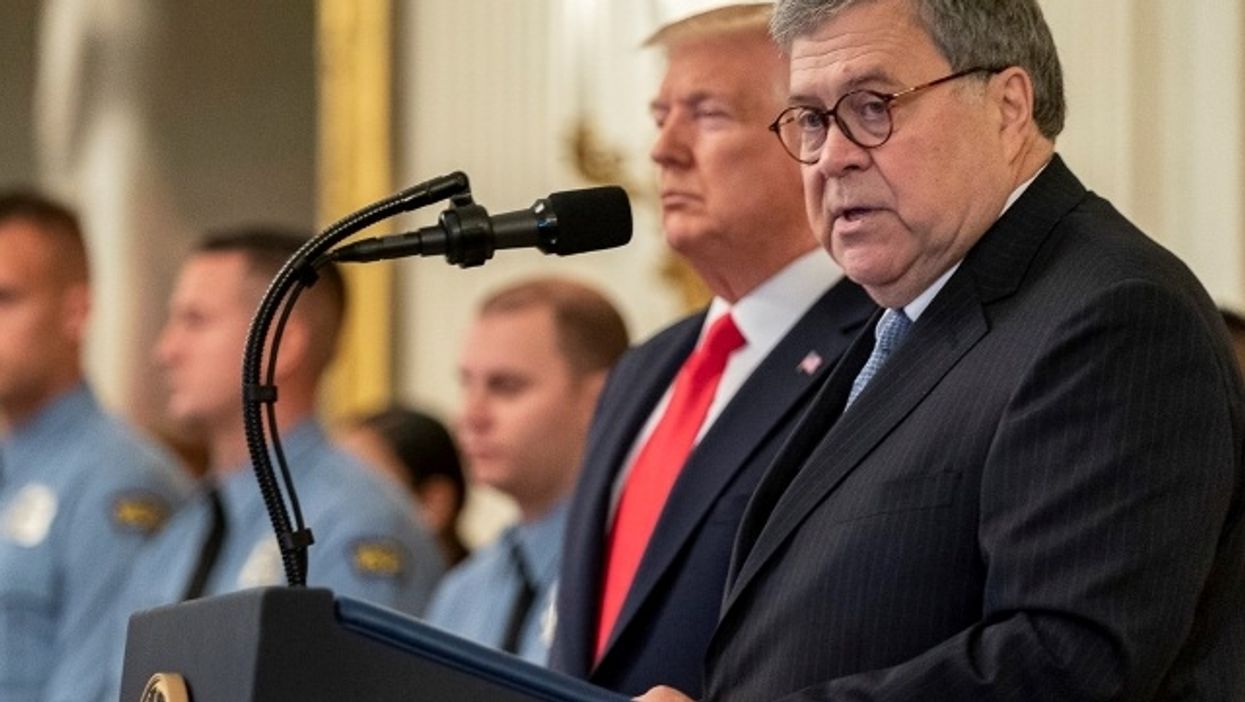Top Justice Dept Elections Official Quits Over Barr’s Latest Ploy
Reprinted with permission from Alternet
Richard Pilger, the director of the Election Crimes Branch in the Justice Department, resigned his position in protest on Monday, according to the New York Times, after Attorney General Bill Barr inserted the agency into the 2020 election in a disturbing way.
Barr sent a letter to prosecutors on Monday authorizing them to pursue investigations into "substantial allegations" of voter fraud, despite no significant evidence that it had any major role in the election. He even said he had authorized some investigative steps; the Times reported that these steps related to allegations of people in Nevada voting from out of state and an allegation that mail-in ballots in Pennsylvania were improperly post-dated, though these claims remain highly dubious.
Barr drew an instant backlash when his memo was revealed publicly, as many commentators saw it as yet another effort to support President Donald Trump's attacks on democracy. As the Times reported, it violated the department's own policy of refraining from interfering in election processes. The attorney general's actions are particularly disturbing given his history as an enthusiastic defender of some of the president's most outrageous claims and his clear partisan animosity toward Democrats and the political left wing generally.
"Having familiarized myself with the new policy and its ramifications … I must regretfully resign from my role as director of the Election Crimes Branch," Pilger wrote in response to Barr's memo, according to the Times. It indicated he will stay on at the department in a non-supervisory role.
The Time report explained:
Justice Department policies prohibit federal prosecutors from taking overt steps, like questioning witnesses or securing subpoenas for documents, to open a criminal investigation into any election-related matter until after voting results have been certified to keep their existence from spilling into public view and influencing either voters or local election officials who ensure the integrity of the results.
"Public knowledge of a criminal investigation could impact the adjudication of election litigation and contests in state courts," the Justice Department's longstanding election guidelines for prosecutors say. "Accordingly, it is the general policy of the department not to conduct overt investigations."
...
Mr. Barr's memo allows U.S. attorneys to bypass that career prosecutor and take their requests to his office for approval, effectively weakening a key safeguard that prevents political interference in an election by the party in power.
The Times noted that there's very little reason to believe that anything the Justice Department could find would actually affect the results of the election. Though fraud occurs, it's exceedingly unlikely it could take place on a scale to swing an election. And it seems even Barr believes this, despite his disturbing moves:
Mr. Barr has privately told department officials in the days since the election that any disputes should be resolved in court by the campaigns themselves, according to three people briefed on the conversations. He has said that he did not see massive fraud, and that most of the allegations of voter fraud were related to individual instances that did not point to a larger systemic problem, the people said.









